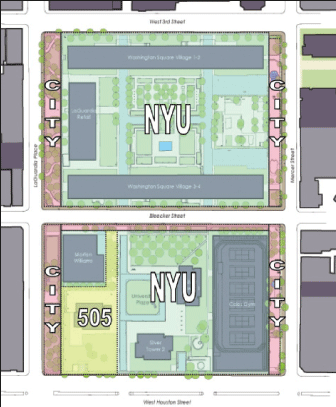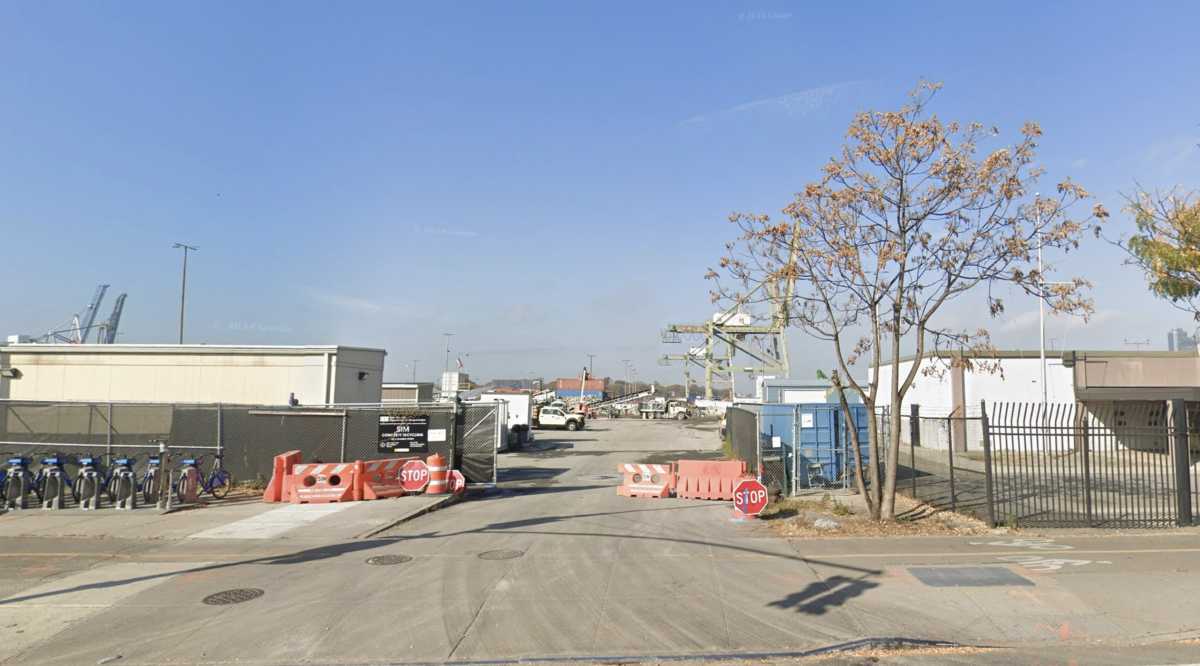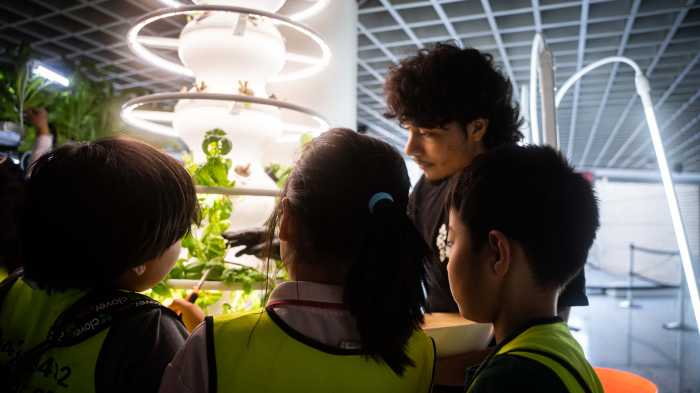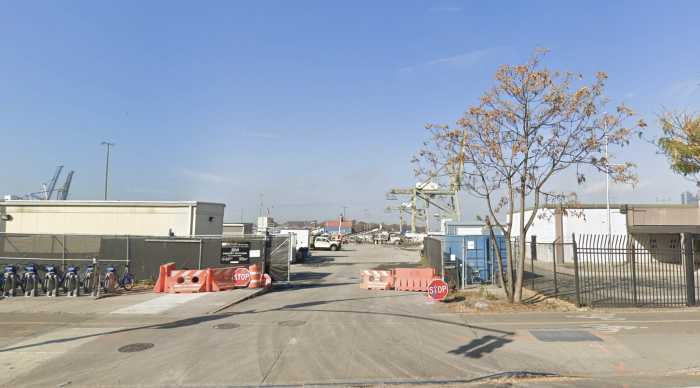By Albert Amateau
Village residents spoke up at a Community Board 2 committee forum last week about the future of open public space in the two New York University-owned superblocks south of Washington Square.
“Don’t build” and “We want all the public open space that we have and more,” were the constant comments at the Sept. 23 meeting with Alicia Hurley, N.Y.U. vice president for government affairs and community engagement, and Toshiko Mori, a consulting architect for the university’s long-range Plans 2031.
The joint hearing of the C.B. 2 Institutions and Parks Committees was the third in the past year about the future of the two superblocks between LaGuardia Place and Mercer St., one on the north between Bleecker and W. Thirds Sts., the site of the four Washington Square Village buildings; and the other to the south between W. Houston and Bleecker Sts., where the I.M. Pei-designed Silver Towers with the free-standing Picasso-designed sculpture, “Sylvette,” and the Coles gymnasium are located.
Although open space was the meeting’s sole agenda, neighbors insisted that open space in the superblocks depended on construction plans.
Neighbors repeated their opposition to the proposal to build a fourth tower in the I.M. Pei complex in the south block and also denounced the proposal to build anything in the open space in the Washington Square Village complex in the north block.
“I’m lucky to live in the north superblock where air and space between the buildings are important to the quality of life in the two superblocks,” said Gail Saplan.
Miriam Kaplan, chairperson of the Washington Square Village Tenants Assoc-iation Task Force, noted that the superblocks were created as an urban renewal area in the early 1960s with a required ratio of open space to built floor area.
“You cannot add one square foot of building without violating the open space ratio,” Kaplan said.
Tobi Bergman, head of the C.B. 2 Parks Committee, said any discussion of open space and building plans had to be based on information about restrictive declarations that might still exist regarding the superblocks.
“Of course, none of these [superblock proposals] are as of right and we’re putting all that information together,” said Hurley, reminding the meeting that plans were very preliminary and any building decision was 10 to 20 years away.
Members and advocates for the LaGuardia Corner Gardens near Bleecker St. on the south superblock said the garden space was an important resource that must be preserved.
“We have about 29 plots, and people on the waiting list — all Village residents,” said Sara Jones. For the past 27 years, the gardeners have collected dues, assigned work on the common areas and conducted free public events, Jones said. “We hire an exterminator who comes once a month — we pay for it all,” she added.
The garden is located on one of the strips of land owned by the city along LaGuardia Place and along Mercer St. on both superblocks. Community garden members and other open-space advocates have been demanding that those strips be transferred to the Department of Parks and Recreation in order to designate them as permanent open space.
But N.Y.U has opposed the transfer, and Hurley said she couldn’t say whether the university would drop its opposition. But she promised to let the school administration know the community’s wishes.
Neighbors said the playground on the Mercer St. side of the north superblock, known as the “Key Park” because it is accessible with keys issued to neighbors, was a beautiful place for parents, caregivers and children.
“The trees are great,” said one neighbor.
“It’s the only place where you can teach a child to ride a bike or to roller skate,” another neighbor said.
However, there was considerable disagreement about whether the playground, for which keys are in high demand, was underused.
The dog run, playground and sprinkler park on the Mercer St. side of the south superblock along the front of the university’s Coles gym were denounced as unusable. Neighbors recalled that N.Y.U. had promised to build a park on the Coles roof, a promise never fulfilled. But Teresa John said playgrounds belong on the ground.
“Playgrounds on rooftops never seem to work,” she said.
“Any loss of open space will be bitterly opposed,” said Teri Cude, a Washington Square Village resident. She recalled that N.Y.U. had suggested that it would include both an elementary and a middle school in any construction in the south superblock. “We can’t trade open space for schools,” Cude said.
Cude said the university should drop all plans for new buildings in the Village.
“With Wall Street’s problems, you’re going to have lots of buildings that you can buy,” she quipped.






































